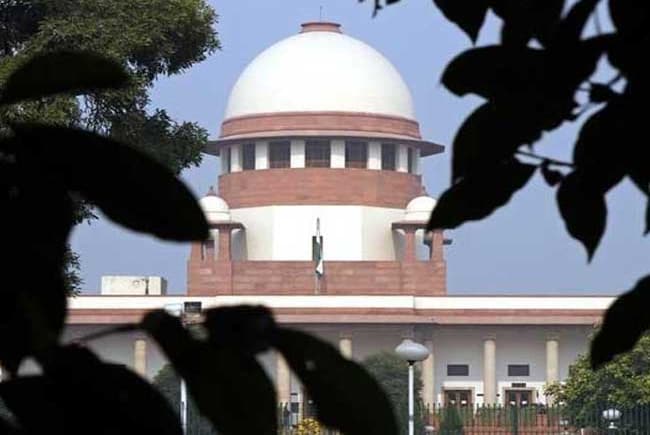
"The Governor can't act on apprehension, he has to play according to the Constitution," the Supreme Court observed.
New Delhi:
The Supreme Court has questioned Arunachal Pradesh Governor Jyoti Prasad Rajkhowa's action of asking the Speaker to advance the session of the state assembly in December. The Governor has to act according to the Constitution, the top court said.
Governor Rajkhowa had sent a message to Speaker Nabam Rabia asking him to call an assembly session at Itanagar on December 16. The session was held in a community centre and a hotel while the assembly hall had been locked on Mr Rabia's orders.
Just last week, the court had lashed out at the Governor's decision. "Can the Governor, when feeling bored, call the assembly (session) to feel some excitement?" a judge on the five-member bench had said.
Mr Rajkhowa's lawyer TR Andhyarujina argued he had apprehended that a "biased" Speaker would act in support of Chief Minister Nabam Tuki who had lost his majority. Nearly half of the ruling Congress's legislators have rebelled against Mr Tuki.
Together with the opposition legislators, they attended the December 16 session and "removed" Mr Tuki and Mr Rabia.
In response to Mr Rajkhowa's counsel, the five-judge constitution bench observed, "It's not Governor's concern who will get majority. The Governor can't act on apprehension, he has to play according to the Constitution. The Governor's duty is to keep the democracy running and not to make a dent in democracy. "
Mr Andhyarujina also told the court that when Mr Tuki went with his ministers to meet the Mr Rajkhowa, two ministers assaulted and abused the Governor and it was reported to the President.
The lawyer argued that there was "a chaotic situation in the state and it is a sensitive border state...It was necessary for the Governor to step in."
Governor Rajkhowa is not a party in the case because he enjoys constitutional immunity but he has chosen to explain his stand though his lawyer.
Governor Rajkhowa had sent a message to Speaker Nabam Rabia asking him to call an assembly session at Itanagar on December 16. The session was held in a community centre and a hotel while the assembly hall had been locked on Mr Rabia's orders.
Just last week, the court had lashed out at the Governor's decision. "Can the Governor, when feeling bored, call the assembly (session) to feel some excitement?" a judge on the five-member bench had said.
Mr Rajkhowa's lawyer TR Andhyarujina argued he had apprehended that a "biased" Speaker would act in support of Chief Minister Nabam Tuki who had lost his majority. Nearly half of the ruling Congress's legislators have rebelled against Mr Tuki.
Together with the opposition legislators, they attended the December 16 session and "removed" Mr Tuki and Mr Rabia.
In response to Mr Rajkhowa's counsel, the five-judge constitution bench observed, "It's not Governor's concern who will get majority. The Governor can't act on apprehension, he has to play according to the Constitution. The Governor's duty is to keep the democracy running and not to make a dent in democracy. "
Mr Andhyarujina also told the court that when Mr Tuki went with his ministers to meet the Mr Rajkhowa, two ministers assaulted and abused the Governor and it was reported to the President.
The lawyer argued that there was "a chaotic situation in the state and it is a sensitive border state...It was necessary for the Governor to step in."
Governor Rajkhowa is not a party in the case because he enjoys constitutional immunity but he has chosen to explain his stand though his lawyer.
Track Latest News Live on NDTV.com and get news updates from India and around the world

